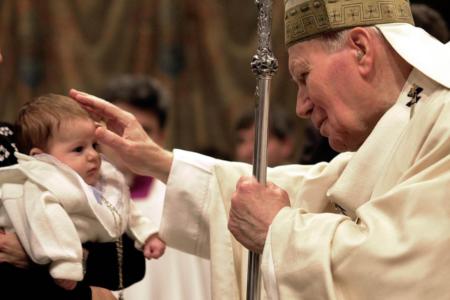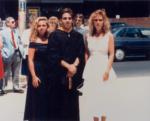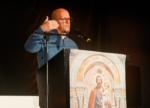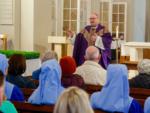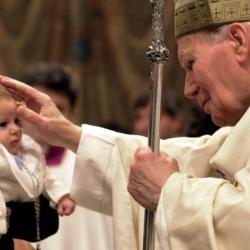Be proud of defending marriage
Sen. Edward M. Kennedy, on the eve of a failed Senate vote that would have started the ball rolling on the amendment to the U.S. Constitution that would affirm the traditional definition of marriage, called supporters of that amendment, bigots.
So he said in a June 5 opinion piece printed in the Boston Herald under the headline “GOP says ‘I do’ to bigotry...”
“A vote for this amendment is a vote for bigotry — pure and simple,” he wrote.
Although the focus of Sen. Kennedy’s piece was criticism of the Republican party, his characterization sadly reaches far beyond that, including the Catholic Church’s position of supporting the federal amendment.
The term “bigotry” connotes intolerance, discrimination, prejudice and hatred of others because of who they are.
It is revealing that the first synonym of bigotry in the Roget’s New Millennium Thesaurus is “Jim Crowism,” a slang term coined in the 19th century to describe racial segregation.
During the civil rights movement in the 1960s, bigotry described the actions of those opposed to racial integration. It is also commonly used to describe those who express anti-Semitic views. In the current controversy over same-sex marriage, gay-rights activists — and now Sen. Kennedy — are using the term to stigmatize those who oppose their intention to redefine marriage.
Kennedy’s characterization of the motives behind the Church’s opposition to same-sex marriage is simply inaccurate.
Catholic teaching calls for respecting the dignity of all individuals, no matter what their chosen lifestyle. A person who describes him or herself as gay or lesbian is, above all, a person. Their individual rights should be fully respected, even if their lifestyle directly contradicts the Church’s position on sexuality.
However, when judges or legislators attempt to redefine marriage, the issue at hand is not individual rights of gays and lesbians, but the right of our society to protect marriage — always understood to be the union of one man and one woman — from a redefinition that will devalue its purpose and weaken its foundations.
The Catholic Church supports the federal marriage amendment, not because of a sentiment of bigotry against gays and lesbians, but because we strongly believe that the institution of marriage should not be expanded to incorporate other private lifestyles — lifestyles that are alien to the primary purpose of marriage, which is to create the best possible environment for procreation and education of children.
Marriage is not a civil right. No one has the inherent right to marry. In fact, a parent cannot marry a child, siblings cannot marry, and a married person cannot marry a second person while still married.
Should any and all personal relationships be considered marriage? After all, most of them are loving relationships.
The purpose of marriage is not simply to recognize a personal arrangement between two — or several — adults, even if stable and loving. Its purpose is to protect and encourage a stable environment in which a father and a mother can bring to the world and raise the next generation of individuals who will assure the subsistence of our civilization.
Every society has protected the institution of marriage as a fundamental institution. Every person of goodwill should oppose the redefinition of marriage, both at the federal and the state level, and proudly defend traditional marriage without fear of being labeled a bigot.
<
